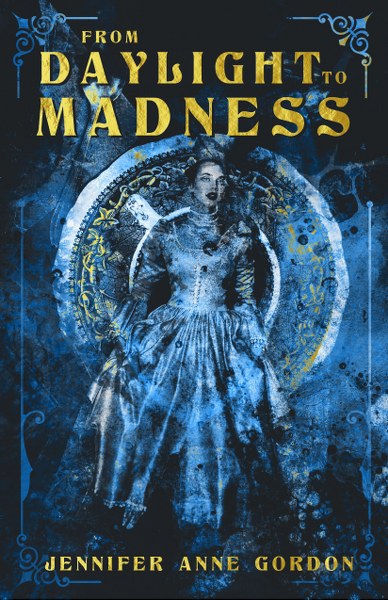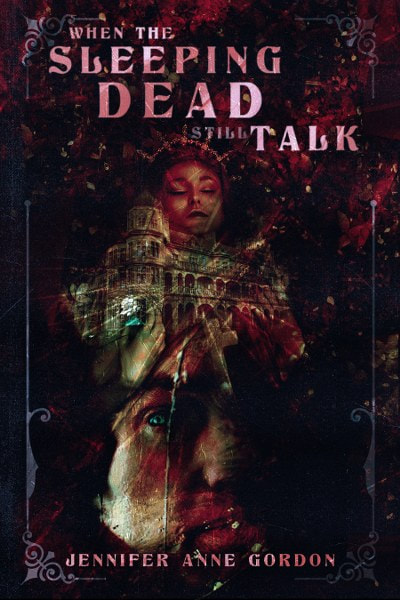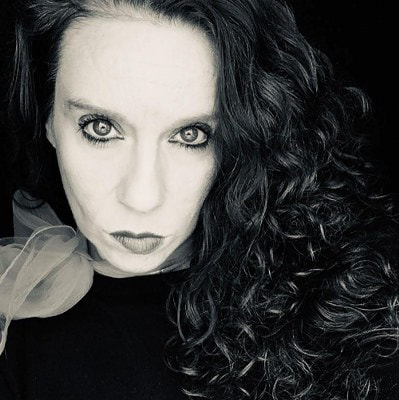From Daylight to Madness
Prologue
April 1873
He cried for about three minutes, his little voice sounded powerful at first, fighting, and strong. His cries found their way to her ears, which had always been so desperate for love. His strange sounds immediately sounded like home, and like love, but those sounds very quickly changed. Of course, it all happened so fast, she did not even know it was a ‘him’ at this point. It was just crying, just screaming.
Just home.
There was an almost immediate feeling of removal, followed by a rush of emotion, pain, and even more blood. So much so, that the expulsion of this texture felt as though she were still giving birth. She did not even realize her part in all of this was done. She had done ‘what she could’ and the rest was up to God.
He made guttural sounds, uneven, jagged bursts. Gasping sounds that seemed to grow muffled, as if there were a thick viscous liquid poured down his throat. It was a drowning of sorts; the irony was that he was drowning outside of her. He was drowning on this crisp spring night in the slightly dusty and salt-tinged air of Portland Maine.
It was painful to her, those begging breaths that seemed to reach out and grasp. The pain was not real, not in a physical sense, not anymore. But the emotional pain, she was beginning to feel it now. In the seemingly endless minutes that passed, she had already come to know his sounds. Those frenzied sounds, the way they stampeded into her, she knew she would feel this forever. They were carved into her like initials on the old Oak tree in the small yard of the poorhouse where she grew up. She knew that the echo of these cries would last years. Their scars would grow pale over time but would always be there, marking her memory; these little auditory footprints that would feel like kicks insides of her.
The part of her that made him, that held him inside her body, was scarred now. Ruined.
There was pain for months before this. It went unsaid. It was ‘to be expected.’ At her age, there should have always been ‘some discomfort.’ She mentioned it, or at least she thought she must have when she would visit her physician. His office was an uncomfortable and dusty room located in the back of the Apothecary.
During her visits, she would describe what she was feeling inside of her. She said it was like butterflies at first, the kicking, the movement . . . but over time it dwindled. The butterflies became moths, and eventually they were just dust in a jar, on a shelf, inside of her body.
She is not quite as sure now, she is trying to remember, and maybe she never mentioned it at all, or at least not enough. She should have made it clearer, made her voice heard; the feeling that something inside her took a wrong turn, that it somehow went wrong. She should have said that the excited feeling she had deep below her belly, was still there, but it felt slower; did she say that? And if she said it, did they hear her; was she heard?
Did they care? Worse, did she care?
She thought she would not be able to take the sound anymore, the plaintive and desperate cries from this small creature that lived inside her, it was too much. Could none of them do anything to make it stop? She tried to push herself out of the bed. She tried in vain to reach for something that was not there, that was never there.
Love.
She imagined the hands, the small fingers almost like cats’ claws. She wanted to feel the sharp nasty cuts from this kitten of hers. This little thing filled with so much fear, anger, and love, that in its excitement it hurt her. It reached out and scratched. It bit.
She bled.
But as she sat up, the room swam around her and the darkness crept in front the corners. It almost overtook her, which was when she noticed it; the sudden silence. She let herself fall back onto the bed as the early morning light turned from daylight to madness, and then of course, there was nothing, there was nothing at all.
Her hair which had been soaked with sweat, now hung cool and damp against her face. The blood soaking the sheets, which were warm only moments ago, began to thicken in the cool air and feel stiff against her skin.
Isabelle thought it would all be different, she imagined throughout these not quite nine months that the room would be warm, that someone would have thought to light candles. She always pictured a healing fire in the fireplace in the corner of the largest room, in their small house. She could imagine Henry’s face, it would be warm, appreciative, it would seem almost, if not quite exactly, to look like love. This expression of his, it would live in the house next to where love would be, if it had only ever moved in, adjacent to it, holding its hand, living with it. A feeling next to love.
He would hand her the baby and Henry would say, “Here he is, our boy, our Oscar.”
It was not nine months. No, of course, it was not. It was seven, maybe seven and a half – she should know. She should have always known the exactness of it, the moment of conception. The moment that she would be more than just a ‘her,’ the moment she would be a mother, the thing she was always expected to be, and until now, and even now . . . was not.
She did not know; she did not know any of this. She was a mother, who now was not. What is that called? Is there a name for that; the silent grief, the mourning that is best ignored, tidied away, lest it make someone uncomfortable?
There was blood on the floor, it was mixed with tissue, there were pieces of her, and pieces of Oscar. She thought perhaps his little hands had held onto something inside of her and pulled it out on his way. As if he knew, it was not his time to leave.
She closed her eyes, and a cry filled the air.
His cries, Oscar’s cries, not hers; Isabelle had not cried.
Not yet.
There would be an inexpensive grave that simply read, ‘Baby Boy,’ when it should have said his name; a name that her husband would want to save for ‘the next one.’ As if this one was not real. As if a life existing in three small minutes somehow meant less than a life lived in thirty years.
This thing that happened, she could almost hear the neighbors whispering about it, their voices thick with judgement and colored on the ends with fear. Whispering about the birth that did not happen, the baby that did not live.
The life that never happened – except it did.
There was Oscar; he was there, for three minutes. There were no loving looks, no warmth of candles and dim soothing firelight. There was pain. There was blood. There was relief.
There was three minutes of crying.
There was Oscar.
Then, then, there was nothing.

Shirley Jackson 's Agoraphobia
Previously Published on LadiesOfHorrorFiction.com
At the height of the most powerful creative work of
her life, Shirley Jackson suffered from intense agoraphobia. There were months
that she was unable to leave her home. Her isolation, and at times deep mental
instability led her to create work that inspire me and legions of other horror
lovers, now. If there were no Haunting of Hill House, and We Have Always Lived
in the Castle, then books like Beautiful, Frightening, and Silent and From
Daylight to Madness (my Literary Gothic Horror novels) would not exist.
I would have a voice that I would perhaps still be
afraid to use.
In my past, I too have also suffered from this affliction,
this all-encompassing fear to leave the house. It was years ago now, and I was
involved in a powerfully abusive and controlling relationship. I made my living
selling my artwork online. My world was small, it consisted of my old house, my
art studio, my dog, my fear, and my imagination.
I created paintings and collages of sad women, former
vaudeville stars, most who died young, seeped in tragedy and gin. I saw myself
in those women, I created each one as a way of screaming out of my closed
windows and bolted doors. I created them as a reminder to the world and to
myself that once upon a time I too was an actress on a stage, I was a poet, I
was a person.
It took years to overcome, and in the past few months,
I have felt at times, that my old friend fear was coming back to me. An
old friend like this never really leaves, does it?
At the end of February my fiancé and I returned home
from a trip to Spain, my debut novel had just been released and sold record
numbers during the presale from my publisher. People would come into the dance
studio where I worked with copies of my novel to sign, which I did, in a
beautiful metallic red marker.
If you have read my book you will understand why I
wrote in red.
I felt at that time that I was on a precipice of
something, perhaps something beautiful, perhaps something frightening…and in
the end we were all on the precipice of something silent.
It was the first week of March and suddenly my dance
students were starting to cancel lessons. When I was out in public and heard a
cough, I grew frightened. There was something creeping out of the shadows for
me, for all of us. It was not just a virus, but also paranoia.
By March 16, the few students I had that day came in
and wept, I wept. In a job that depends on me touching people, physically and
emotionally, we went without touch.
The next day the dance studio shut down, and I was
once again, in my house, and afraid to leave.
Luckily for me, this go around, I am with someone who supports me, and
loves me, but once again I find myself with an exceedingly small world. An old
house, a dog, my fear, and now…my books.
I am now 47,000 words into my third horror novel, the
second part in a sweeping historical horror tale that deals with isolation,
fear of what is outside, and what is inside your head. I realize I am still
that artist telling a story of a sad woman, screaming from behind a closed
door. I am still someone looking into a broken mirror and finding myself and
the world broken in two.
As artists, and authors, we are mirrors of the world,
we are reaching the fingers of our imagination out and bringing back fragments
of stories, pieces of characters, memories that we are creating, and giving to
imaginary people.
What happens though when we reach out towards
something, and now, we are met with walls. My hands seem to scrape against the
things that are keeping me safe. They long to break through, but instead they
come back with bruised knuckles.
So…. that goes in the book. It all goes in the book.
Tomorrow I leave my house to go back to a job that
will be a shadow of what it was a few months ago, it is a job I know is ending
completely by October. It is a shadow that both scares me and intrigues me.
Until then, I rest my head against this pillow, I hear a large animal rustling
in the deadfall outside my window. The air feels cool for late summer as the
wind blows in off the river that still runs high from too much rain for too
long.
My imagination is there with my new main characters,
Isabelle, and Francis. They are the result of these long months, of the
sickness with no cure, the almost birth of a second round of agoraphobia. They
fight against it all, as do I.
At the end of this long endless day when their eyes
close so do mine.
I will end this with a list of the things that
inspired me today, and I encourage all of you to hit me up on facebook @JenniferAnneGordonAuthor and tell me what is
inspiring you.
1-People that are lost...specifically
people lost at sea, or at war, I am drawn to the women left behind.
2- Cold Climate Islands, specifically in the Northern Atlantic.
3- Tidal pools
4 -Photos that are out of focus, or over exposed.
5- The Victorian Spiritualist movement, and mesmerism used for therapeutic
reasons.
6- Waking from a dream, just to see the
person sleeping next to you has woken at the same time, and one or both of you
whisper, “I just had the worst dream.”










thank you so much for posting this and sharing the guest post
ReplyDelete